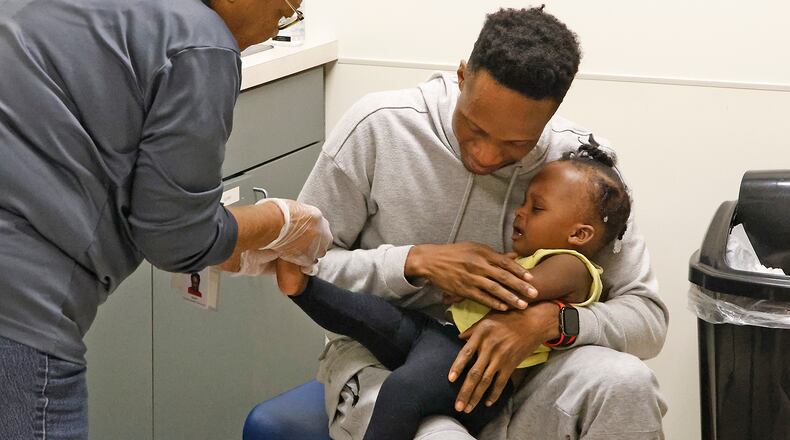Anna Jean Sauter, supervisor for assessment and surveillance with the Clark County Combined Health District, said the plan is based on concrete data.
“It’s really important for us to acknowledge that this isn’t just a health department thing. It’s really a community thing,” Sauter said.
A panel of community partners came together to discuss the CHIP during a Facebook live video on the health department’s page Friday afternoon.
Housing and neighborhood stability
Aaron Clark, Springfield city neighborhood planning coordinator, and Amy Willmann, executive director of the Nehemiah Foundation, discussed the importance of having access to safe and stable housing.
“If I have a safe home and I feel safe, that affects my wellbeing,” Clark said.
Clark said he has learned that a lot of youths in the county do not feel safe in their neighborhoods. He said addressing this can improve health outcomes. The city is working on initiatives such as neighborhood influencers and Legacy 24 to address some of these issues.
Some of the goals included in the CHIP are reducing the number of young people experiencing homelessness, increasing safety, increasing the number of livable houses, reducing violent crime and increasing access to clean water, sewer service and trash removal.
Mental health
Health department Health Planning Supervisor Gracie Hemphill said Clark County has more deaths by suicide and substance overdoses per capita than Ohio and the U.S.
Kelly Rigger, Mental Health Services CEO, said mental health is a “cross-cutting” issue, affecting every aspect of a person’s health. She said ensuring mental healthcare is accessible and affordable will improve the community.
Hemphill said harm reduction, like naloxone for overdoses, is also important in helping reduce overdose deaths.
According to the health department, 80% of people in the county who died by drug overdose also had mental illness diagnoses, most often depression.
The CHIP aims to connect more youths to mental health support services, reduce the number of young people who have considered suicide and lower rates of drug overdoses.
Moms, babies, and sexual health
AnnMarie Schmersal, infant vitality coordinator with Start Strong Clark County, said that infant mortality rates are high in the county. She said this is often attributed to early birth, congenital defects or unsafe sleep practices.
Schmersal said the goal is to increase the number of babies who make it to their first birthday.
Mary Shaw, nurse practitioner for the sexual health and wellness clinic for the health department, said teen pregnancy birth rates account for 22.1 per thousand births, and the goal is to reduce this to 20.
Shaw said teens are having sex younger and sexual health classes are key in reducing teen pregnancies.
Clark County has high rates of syphilis as well, and Shaw said sexual education classes as well as mandatory testing for all clinic patients can help address this.
Chronic disease
A large focus of the CHIP is reducing high rates of chronic disease in the county. Carolyn Young, director of community health at Mercy Health - Springfield, said there are high rates of cardiovascular issues, stroke, diabetes, and different cancers here.
Daniel Vilmond, a physician from Haiti and current health department interpreter, said much of the same is true for Haitian immigrants here. He said leading causes of death are similar to Black Americans — hypertension, diabetes and certain cancers. He said education and regular health screenings are crucial in reducing these numbers.
Young said encouraging people to go to annual physical exams is important and people should stop smoking and consuming marijuana. She said maintaining healthy relationships is also important.
Vilmond said exercise can help reduce the risk of diabetes and hypertension.
“As immigrants, I know people think they don’t have time to do activity physical, but it is a very good thing people should think about,” Vilmond said.
The full CHIP report can be found on the health department’s website.
About the Author
